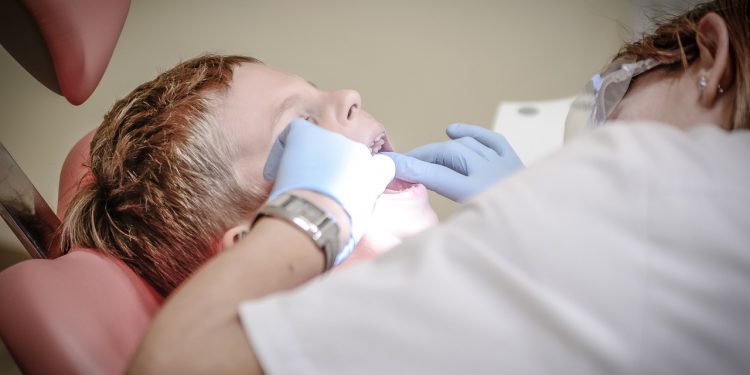From the moment your baby is born, you take on the important responsibility of ensuring their health and well-being. While many parents are familiar with the significance of nutrition, sleep, and pediatric checkups, oral health often gets overlooked in the early months of a baby’s life. However, caring for your baby’s oral health should start sooner than you may think. Establishing good oral hygiene habits from infancy can set the foundation for a lifetime of healthy teeth and gums. This essay will explore when and how to start caring for your baby’s oral health, along with the best practices for maintaining a bright, healthy smile.
The Importance of Early Oral Care
You might be wondering why oral care is necessary for a baby who doesn’t even have teeth yet. The truth is, the health of your baby’s gums and emerging teeth is essential for their overall well-being. Proper oral care not only helps prevent dental issues later on but also supports speech development, eating habits, and overall health.
Bacteria can accumulate in your baby’s mouth even before their teeth appear. By gently cleaning your baby’s gums, you can prevent the buildup of bacteria that could lead to infections or other oral health problems. Establishing these habits early also helps your baby get accustomed to having their mouth cleaned, making the transition to brushing easier once their teeth start to come in.
When to Start Oral Care
The right time to start caring for your baby’s oral health is as soon as they are born. You don’t have to wait for the first tooth to appear—instead, begin by gently cleaning your baby’s gums with a clean, damp washcloth or a soft gauze pad. This can be done once a day, ideally after feedings, to remove milk residue and bacteria.
Once the first tooth makes its appearance—typically around six months of age—you can switch to using an infant toothbrush. Choose a toothbrush with soft bristles and a small head designed for babies. It’s important to brush your baby’s teeth twice a day to ensure that they stay clean and free from plaque buildup.
How to Care for Your Baby’s Gums and Teeth
In the early months, caring for your baby’s gums is simple. After each feeding, use a clean, damp cloth or gauze to wipe your baby’s gums gently. This helps to keep their mouth clean and free of any bacteria that might cause problems later. It also introduces your baby to the sensation of oral care, making it less challenging to introduce toothbrushing later.
When your baby’s first tooth starts to come in, you can transition to brushing with a soft-bristled toothbrush and a tiny smear of fluoride toothpaste—about the size of a grain of rice. Brush in gentle circles, ensuring that you reach all the surfaces of the tooth. Even though your baby may have only one or two teeth, it’s essential to start the brushing routine early to maintain a healthy oral environment.
Once more teeth come in, continue to use a small amount of fluoride toothpaste and brush twice daily. Encourage your baby to spit out any excess toothpaste, but don’t worry if they swallow some—a small amount of fluoride is safe for infants and helps strengthen their teeth.
Teething and Oral Care
Teething is an inevitable part of your baby’s development, and it can be a challenging time for both babies and parents. Teething typically starts around six months of age, but it can begin earlier or later. Symptoms include increased drooling, irritability, and a desire to chew on objects. To help ease the discomfort, you can offer your baby a clean, cool teething ring or gently massage their gums with a clean finger.
During this time, it’s essential to maintain your baby’s oral care routine even though they might be fussy. Keeping their mouth clean can help reduce the risk of infections and ensure that their new teeth come in healthy. Be gentle while brushing and avoid any pressure on the areas where new teeth are emerging, as these spots are likely to be sensitive.
Preventing Early Childhood Tooth Decay
Early childhood tooth decay, often referred to as baby bottle tooth decay, is a common concern that can arise when a baby’s teeth are frequently exposed to sugary liquids, including milk and formula. Prolonged exposure, especially during nighttime feedings, allows sugars to remain on the teeth, creating an environment for bacteria that can lead to tooth decay.
To prevent early childhood tooth decay, avoid putting your baby to bed with a bottle, as this can cause the sugary liquid to pool around their teeth. Instead, try to establish a bedtime routine that includes feeding before sleep, and clean your baby’s gums or teeth afterward. Once your baby starts drinking from a sippy cup, encourage them to drink water rather than juice or sugary drinks.
Another way to protect your baby’s teeth is to limit sugary foods and drinks. While it’s natural to want to offer sweet treats, these should be occasional rather than regular parts of their diet. Providing a balanced diet with plenty of fresh fruits and vegetables helps promote healthy teeth and gums and reduces the risk of decay.
Establishing a Dental Home
The American Academy of Pediatric Dentistry recommends that a baby should have their first dental visit by the time they turn one or within six months of their first tooth erupting. This first visit is important for establishing a “dental home” for your child—a place where they will receive consistent dental care as they grow.
During this first visit, the pediatric dentist will examine your baby’s teeth and gums, offer guidance on proper oral care, and address any concerns you might have. Early dental visits help ensure that any potential problems are detected early and provide parents with valuable information on caring for their child’s teeth. These visits also help your child become familiar with the dental office, making future visits less intimidating.
Promoting Healthy Habits from the Start
Caring for your baby’s oral health is about more than just preventing cavities—it’s about instilling healthy habits that will last a lifetime. Making oral care a part of your daily routine teaches your baby that taking care of their teeth is an essential part of their overall well-being. As your child gets older, encourage them to take an active role in brushing their teeth by allowing them to practice brushing on their own, followed by a parent’s turn to ensure the teeth are thoroughly cleaned.
Modeling good oral hygiene habits as a parent also helps your child learn the importance of taking care of their teeth. Letting your baby watch you brush your teeth can make them more interested in brushing their own. Make oral care a fun and positive experience by singing songs, using a timer, or giving them a special toothbrush with their favorite character.












